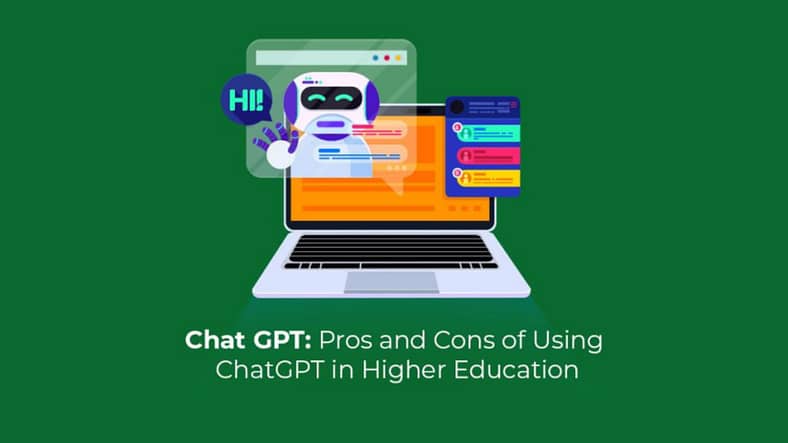In recent years, Artificial Intelligence (AI) has become an integral part of our lives, significantly impacting various sectors, including education. Among the many AI tools available today, ChatGPT has gained considerable popularity, especially among students. This blog post explores how students can leverage ChatGPT and other AI tools for their projects and studies while weighing the pros and cons of these technologies.
Understanding ChatGPT and AI Tools in Education
ChatGPT, developed by OpenAI, is a language model that generates human-like text based on the prompts it receives. It can assist students in numerous ways, from generating ideas and drafting essays to answering complex questions and providing study resources. Alongside ChatGPT, there are other AI tools designed to aid students in their academic journey, including plagiarism checkers, citation generators, and personalized learning platforms.
Advantages of Using ChatGPT and AI Tools
1. Enhanced Productivity:
- AI tools can significantly reduce the time spent on research and content creation. Students can quickly generate ideas, outlines, or even complete drafts for essays and projects, allowing them to focus more on refining their work rather than starting from scratch.
2. Personalized Learning:
- AI-driven platforms offer personalized learning experiences by adapting to individual learning styles and paces. This personalization helps students grasp concepts more effectively and can lead to better academic performance.
3. Access to Vast Resources:
To Receive Latest Updates on: Scholarships, Internships, Recruitments and Job Opportunities Join our Telegram and WhatsApp Group Now!!
- AI tools can quickly sift through vast amounts of information, providing students with relevant resources and data. This is particularly useful for research projects where extensive literature reviews are required.
4. Improved Writing and Editing:
- Tools like grammar checkers and style editors powered by AI can help students enhance their writing skills. These tools not only correct grammatical errors but also suggest improvements in tone, clarity, and structure.
5. Round-the-Clock Assistance:
- Unlike human tutors, AI tools are available 24/7. This means students can get help whenever they need it, be it late at night or early in the morning, making learning more flexible and accommodating.
Disadvantages of Using ChatGPT and AI Tools
1. Dependence on Technology:
- While AI tools can be incredibly helpful, there is a risk of students becoming overly reliant on them. This dependency can hinder the development of critical thinking and problem-solving skills, as students might prefer quick AI-generated solutions over working through problems themselves.
2. Risk of Plagiarism:
- AI-generated content can sometimes closely resemble existing works, leading to unintentional plagiarism. Additionally, students might be tempted to submit AI-generated essays without proper attribution or modification, which can have serious academic consequences.
3. Lack of Deep Understanding:
- AI tools can provide answers and solutions, but they do not necessarily promote deep learning. Students might use these tools to get through assignments quickly without fully understanding the underlying concepts, which can be detrimental in the long run.
4. Potential for Misinformation:
- AI tools like ChatGPT are not infallible and can sometimes provide incorrect or misleading information. Students who rely solely on AI without verifying the accuracy of the content may end up using incorrect data or drawing flawed conclusions.
5. Privacy and Ethical Concerns:
- The use of AI tools raises questions about data privacy and the ethical implications of AI in education. Students need to be aware of the data they share with these tools and understand the potential risks involved.
Balancing the Use of AI in Education
To maximize the benefits of ChatGPT and other AI tools, students should approach their use with a balanced perspective. It’s essential to combine the efficiency of AI with critical thinking and independent study. Here are some tips:
- Use AI as a Supplement, Not a Substitute: AI tools should be used to complement traditional learning methods, not replace them. Engage with the material on your own first before turning to AI for assistance.
- Verify Information: Always cross-check the information provided by AI tools with credible sources to ensure accuracy.
- Focus on Understanding: Use AI tools to aid your learning process but prioritize gaining a deep understanding of the subject matter.
- Be Mindful of Ethics: Avoid using AI to complete assignments dishonestly. Instead, use it to enhance your learning and skills.
Conclusion
ChatGPT and other AI tools offer remarkable advantages for students, from enhancing productivity to providing personalized learning experiences. However, these benefits come with potential drawbacks, such as over-reliance on technology and the risk of misinformation. By using AI tools thoughtfully and responsibly, students can harness their power while still cultivating the essential skills needed for academic success.
Are you using AI tools in your studies? Share your experiences and tips in the comments below!






